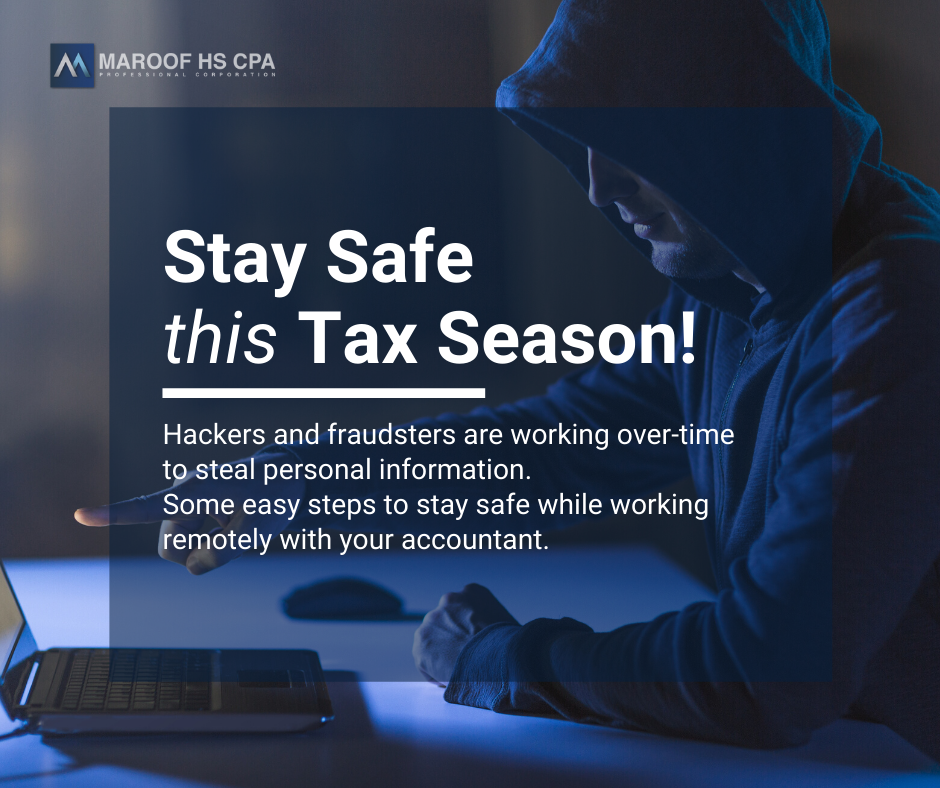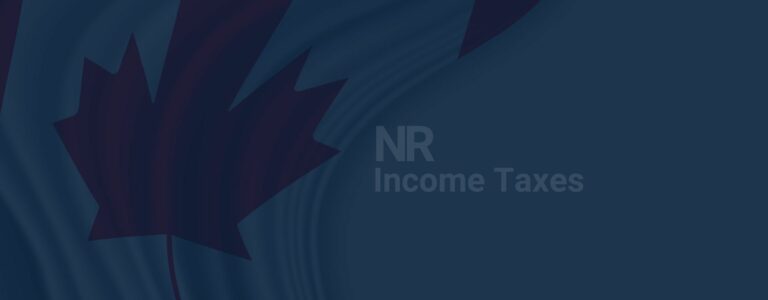
Millions of Canadians and Residents are looking to file their taxes. Traditionally, taxpayers with simple tax situations tend to visit drop-off locations of various tax service providers. With Covid-19, many individual income tax preparers are offering online/remote services.
Along with tax preparers and tax professionals, fraudsters and cybercriminals are working overtime as well. From harvesting the online credentials to filing fraudulent benefits claim Fraudsters and cybercriminals are now counting on many taxpayers.
Canadian Anti-Fraud Centre mentioned that 45,000 taxpayers became victims and lost about $96 million in 2019, and yet a lot of Canadians still ignore the information security risks. In March 2021, Canada Revenue Agency (CRA) has suspended 800,000 taxpayer’s accounts after their credentials were found up for sale on Dark Web.
Information security is not the only concern, choosing the right income tax professional is extremely important as well.
There are some easy steps you can take to avoid being a victim of fraud.
Falsely filed tax returns & benefits
Most of the time, the purpose of filing a false tax return is to receive refunds or benefit payments related to some other taxpayer.
By end of January 2021, there were 8,500 CERB related identity theft cases. CRA is investigating those incidents but meanwhile, taxpayers are left with a higher tax bill. Towards the end of tax season, more such cases are expected to be discovered.
Fraudsters and cyber criminals play the following tricks for this purpose:
- Identity theft is becoming more and more common nowadays. CRA is monitoring the dark web on a regular basis to identify the taxpayer’s credentials up for sale there.
- Phishing and malware schemes where taxpayers receive emails pretending to be from government agencies such as Service Canada or CRA.
- Impersonation scams where taxpayers receive calls for an outstanding debt to CRA or Service Canada.
If you are a victim of identity theft, you can contact Industry Canada or major credit reporting agencies.
Some of the tips to minimize such frauds are:
- Do not click the emails to access your CRA my account. Instead, use the official link and login there.
- Continuously monitor your accounts for activity. If there is any address change or direct deposit information change in your CRA account, you should contact CRA immediately.
- If you have received a T4A from the Government of Canada and you never received CERB payment, call CRA individual helpline.,
- Do not provide information to the scam callers. Instead, get the agent ID and call back on the official lines of CRA or Service Canada.
- Frequently change your passwords.
- Set yourself up for email alerts
Remote Tax Filing Services
During the pandemic, many tax preparation service providers in Canada are offering online or remote services. While the risk of Covid-19 transmission is greatly reduced by minimizing face-to-face interactions, the risk of fraud increases as well.
- If you do not know the tax professionals and this is your first time using them, make sure you are providing all your information to a legit business! You can do so by checking their website, looking at consumer reviews such as Google reviews, online presence, or asking for their professional credentials.
- Email is less secure and can be intercepted by third parties. When you transmit your data, insist on encrypted or password-protected files. Some tax preparers offer portals provided by other service providers.
- Do not share the passwords of password-protected files in the same email. It’s best to provide the password separately such as phone calls or SMS.
- For your portals use a complex password, frequently change your passwords and keep your computers up to date with the latest security releases.
Use a Credible Accounting firm to prepare personal taxes
Besides, cybercriminals and fraudsters trying to steal information, some tax preparers also get involved in tax frauds. Some tax preparers promise maximum refunds and do not hesitate to break the rules. Later on, end up paying hefty fines and penalties on top of the tax owing.
- Always read your tax return before you sign T183! Once you sign the T183, all the information contained in your tax return is your responsibility. CRA tends to charge Gross negligence penalties in many cases. A case of B.C. tax consultant is very much in news nowadays where CRA is going after taxpayers for gross negligence.
- Focus on tax optimization and efficient income tax planning with a professional accountant in Canada rather than relying on guaranteed refund promises.
- Where possible, use services of accountants having a good reputation and preferably professional designations. A good accountant should be able to answer all your questions and explain the credits and deductions taken on the tax return.
- Sometimes the cost does or does not matter. During the tax season, many tax preparers tend to charge higher than usual prices. Always ask for the professional credentials of the individuals who will be working on your income tax return. Many tax preparation services running popular shops are not always the best choice.
Maroof HS CPA Professional Corporation is a professional accounting firm registered with CPA Ontario and CPA Alberta. Amongst a range of accounting, finance and tax services; we provide comprehensive individual income tax services in Canada.
Get in touch with us to experience a superior quality of service for both Income tax preparation and tax planning in Canada.




